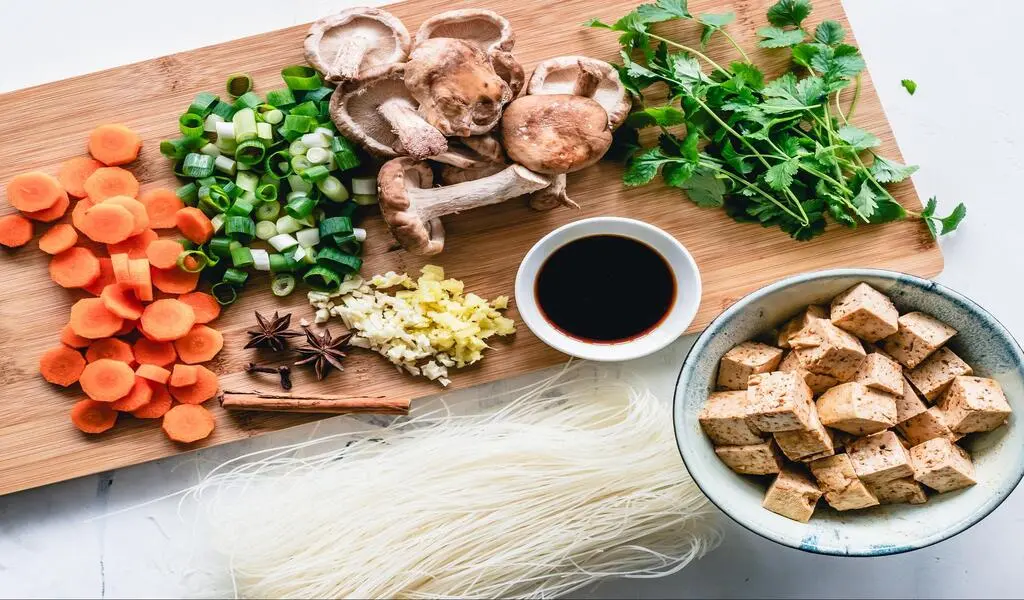Health
The Power of Plant-Based Protein: 11 Sources to Boost Your Diet

For decades, people have debated about the best sources of protein to include in their diets. While meat and dairy products have been the traditionally recommended sources, plant-based proteins are quickly gaining popularity as a healthier and more environmentally friendly alternative.
In this article, we will explore 11 different plant-based protein sources and provide tips on how to incorporate them into your daily meals.
It is essential to maintain a balanced diet, which includes staying aware of potential health issues that can arise from certain foods, such as candida overgrowth. Combining plant-based proteins with an antifungal supplement for candida can help keep your gut healthy and immune system strong.
1. Tofu
Tofu, made from soybeans, is an excellent source of protein, containing 10 grams per half-cup serving. Additionally, it provides essential amino acids, calcium, and iron. Tofu comes in different textures, which can be utilized in various dishes such as stir-fries, smoothies, or desserts.
2. Quinoa
Quinoa, originally from South America, is a versatile and nutrient-dense seed often referred to as a pseudocereal due to its grain-like properties. With 8 grams of protein per cup, quinoa is a complete protein, providing all nine essential amino acids. It can be incorporated into a variety of dishes, including salads, veggie burgers, and soups.
3. Edamame
Edamame, or young soybeans, is a protein superstar with 18 grams of protein per cooked cup. They are rich in fiber, vitamins, and minerals, including folate and vitamin K. You can enjoy edamame as a snack, add them to salads, or incorporate them into hummus for added protein.
4. Seitan
Seitan, made from wheat gluten, offers an impressive 25 grams of protein per 3.5-ounce serving. Its meat-like texture is popular in plant-based dishes that require a protein substitute. Use seitan in stir-fries, sandwiches, and salads as a protein-packed alternative to meat.
5. Lentils
Lentils are part of the legume family and are a fantastic source of plant-based protein, providing 18 grams per cooked cup. They come in various colors, such as green, brown, and red, each offering slightly different nutritional benefits. Lentils can be used in soups, stews, salads, or even as a base for veggie burgers.
6. Chickpeas
Chickpeas, also known as garbanzo beans, provide 15 grams of protein per cooked cup. They are a good source of fiber, magnesium, and potassium. Chickpeas can be used to make hummus, blended into burgers, added to salads, or roasted for a crunchy snack.
7. Chia Seeds
Chia seeds are tiny, nutrient-packed powerhouses, providing 3 grams of protein per tablespoon, as well as being rich in omega-3s and fiber. They can be sprinkled on yogurt, added to smoothies, or used to create chia pudding for a protein-rich breakfast or dessert.
8. Tempeh
Tempeh is a fermented soy product that contains 15 grams of protein per 3-ounce serving. Unlike tofu, tempeh has a firmer texture and a nuttier taste, making it an appealing choice for grilling or stir-frying. It’s also rich in probiotics, promoting gut health and digestion.
9. Pumpkin Seeds
Pumpkin seeds are not only a delicious snack, but they also provide a good source of plant-based protein. With 7 grams of protein per ounce, these seeds can be easily incorporated into a balanced diet. You can add them to granola, sprinkle them onto salads, or even bake them into bread and other baked goods for an added protein boost.
10. Spirulina
Spirulina is a nutrient-dense blue-green alga often consumed as a supplement or in powder form. With a remarkable 8 grams of protein per 2 tablespoons, spirulina is an easy way to add a protein boost to your meals. Stir it into smoothies, mix it into salad dressings, or whisk it into your favorite dips for a unique flavor and added nutrients.
11. Almonds
Almonds are an excellent source of plant-based protein, offering 6 grams per ounce. These nuts are also rich in healthy fats, fiber, and vitamin E. Almonds can be eaten raw as a snack, added to oatmeal, incorporated into energy bars, or blended into almond butter for a protein-rich alternative to peanut butter.
Final Thoughts
While meat and dairy products have their place in some diets, it’s essential to explore the power of plant-based protein sources for a healthier and more balanced diet. Incorporating a variety of plant-based proteins not only helps to meet your daily protein needs but also adds diversity and interest to your meals. Start including these powerful protein sources in your diet and enjoy the benefits of a more vibrant and healthier lifestyle.
SEE ALSO: Immunization Awareness Month: Noteworthy Vaccine Developments in 2023


























